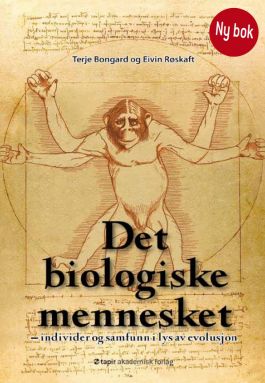 |
Terje Bongard was treated
with the same ignorance by
the Research Counsil
of Norway, as Galileo Galilei
was by the inquisition
|
The handicap principle is a concrete force, it's the driver of human behaviour and interaction, and we can use this force for good or for evil.
The handicap principle is there, just like the sun is there. We can learn to harvest its energy, like with solar energy, for the benefit of human civilization.
The Research Council of Norway didn't understand this fact. If Terje Bongard's application was for harvesting solar energy, he would most surely got fundings for his research project MEDOSS.
The Research Council of Norway is just as narrow minded as the inquisition, those men who didn't accept that the Sun is the centre of our solar system. The same way is the handicap principle the force that directs human behaviour.
Here is the answer I gave to a comment from my good friend Vera Bradova:
The RID-Model is a down-up system, but as a democracy it has to include everyone. If one hawk is free to predate on the system, it will fail. It has to include everyone into the system, so it has to be implemented top-down, as you say. It has to be equal for everyone at once.
The RID-model will be focused around production, every in-group to be responsible for their own little part of the production system. This is because the production system is what threatens our survival, still it’s outside of democratic control.
What is the point of the ingroup-model is to harvest the fruits from the “positive” side of the handicap principle, which is the driver of human behavior. This “good force” we can use to organize every aspect of society. No matter how it comes alive, bottom up or top down, the fruits of this force are the same, cooperation, sacrificing, modesty etc.
You see this aspect of the handicap-principle most clearly among the social flock bird the arabian babbler, which Amotz Zahavi, the “founder” of the handicap-principle, studied in the Negev Desert for 40 years. See the book: The handicap principle: A Missing Piece of Darwin’s Puzzle. 1997, Oxford, UK: Oxford University Press. By Amotz and Avishag Zahavi.
On the contrary, our capitalist and modernist system, almost entirely grows the “dark side of the force”, the “janus face” of human nature. Terje Bongard exemplifies this in his book “The biological human being” (http://blog.p2pfoundation.net/the-biological-human-being-individuals-and-societies-in-light-of-evolution-first-chapter/2014/01/30) with using the Australian satin bowerbird as an example of a “capitalist”, that mean growing the “destructive” force of the handicap principle in human society. If a society is organized around this side of the handicap principle, you get a bunch of egoists.
Earlier people instinctively organized to harvest the benefits from the handicap principle, like in the tribe. Or in the alexandrine pattern 37: http://www.patternlanguage.com/apl/aplsample/apl37/apl37.htm
The RID-Model would create the ultimate commons, dissolving both the market and the state, making us all part of a superorganism. Where every individual had an equal say. This is a highly scientific model stemming from the best knowledge available about human behavioral biology.
 |
| Terje Bongard's RID-Model is a gateway to create the ultimate commons for humanity. A key to give back hope for future generations and our Earth. |
 |
| Terje Bongard's book The Biological Human Being, preliminary only in Scandinavian language, gives the answers to what a human being really is. It explains why we act as we do, and reveals how we can use inherited biological drivers to design for cooperation and sustainability. |
 |
| A model of the ultimate representative democracy, adjusted for Norway. Larger nations will need one more level of ingroups. |
- Har funnet svaret på hva et menneske er
- Nesting Instinct
- Med hovudet i Riftdalen – frå olje veks ingenting
- Inngruppa som styrende prinsipp i et bærekraftig demokrati
- Fra massesamfunn til stammesamfunn? Terje Bongard hos NRKs Verdibørsen
- Kapitalismen – frå eit gode til eit vonde – og vegen vidare
- Pengefølelsen – Hvis mat blir en knapphetsvare, har 2500 milliarder symbolkroner ingen verdi
- Evolusjon, samfunn og kultur



"The Prince of Evolution offers a tantalizing peek into the life and ideas of a man Dugatkin calls “one of the world’s first international celebrities,” someone who filled auditoriums throughout Europe, England, and the United States with talks ranging from biology to anarchy to Russian literature. Kropotkin was a thinker whose ideas were so large that a single discipline could not contain them, and they were thought to be so dangerous that he was arrested multiple times and spent lengthy prison terms in Russia and France for communicating them. Part of what made him such a threat to the monarchs of Europe, Dugatkin suggests, was that Kropotkin refused to accept any authority that wasn’t based on scientific principles. He urged people everywhere to reject illegitimate tyranny and to use the tools of critical thinking and science to build a more equitable society themselves.” (http://blogs.scientificamerican.com/primate-diaries/2011/09/13/prince-of-evolution/)"
ReplyDeletehttp://blog.p2pfoundation.net/book-of-the-day-the-prince-of-evolution/2014/09/29
There might be that the Research Council of Norway represents today's "kings"?
“He generally had a negative view of capitalism but, even more important, was his work on mutual aid in human evolution from early on through the medieval period. His research showed that over and over again people figured out a way to create small, interacting cooperative groups like the guilds in the Middle Ages. But the problem he found was that, as soon as these cooperative groups emerged, it immediately created selection pressures that favored parasites. These parasites would come in and suck up what they needed from individuals who were being good to one another and, eventually, cause the society to crumble. So, certainly, Kropotkin would not have been at all surprised by what has happened today.
I think this gets to the episodic nature of social change in Kropotkin’s view. As soon as you establish a cooperative society, you immediately create these dramatic forces that favor cheating. The question of how to stop that was one that Kropotkin was obsessed with.” (http://blogs.scientificamerican.com/primate-diaries/2011/09/13/prince-of-evolution/)
These parasites are probably what Bongard names "the Hawks", and this problem would be prevented with his RID-Model.
Wonder how Peter Alexeyevich Kropotkin's theories would have looked like if he had known about the handicap principle, which is the underlying force of sexual selection?